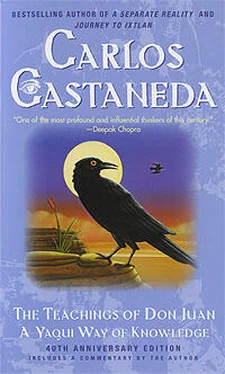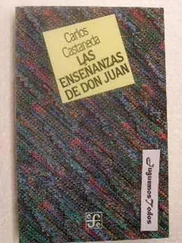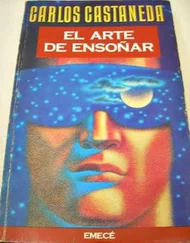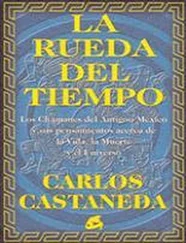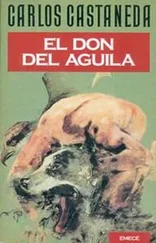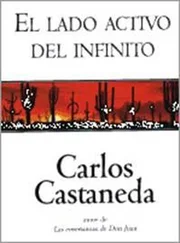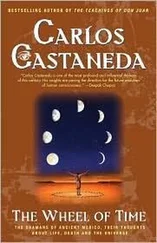5. In order to provide special consensus on the corroboration of the ally's rule, don Juan had to provide special consensus on the component elements of all the states of non-ordinary reality and the special states of ordinary reality elicited in the course of his teachings. Special consensus, therefore, dealt with unordi— nary phenomena, a fact that permitted me to assume that any apprentice, by accepting special consensus, was led into adopting the conceptual order of the knowledge being taught.
6. From the point of view of my personal stage of learning, I could deduce that up to the time when I withdrew from the apprenticeship don Juan's teachings had fostered the adoption of two units of the conceptual order: (1) the idea that there was a separate realm of reality, another world, which I have called the 'reality of special consensus'; (2) the idea that the reality of special consensus, or that other world, was as utilizable as the world of everyday life.
Nearly six years after I had begun the apprenticeship, don Juan's knowledge became a coherent whole for the first time. I realized that he had aimed at providing a bona fide consensus on my personal findings, and although I did not continue because I was not, nor will I ever be, prepared to undergo the rigours of such a training, my own way to meet his standards of personal exertion was my attempt to understand his teachings. I felt it was imperative to prove, if only to myself, that they were not an oddity.
After I had arranged my structural scheme, and was capable of discarding many data that were superfluous to my initial effort of uncovering the cogency of his teachings, it became clear to me that they had an internal cohesion, a logical sequence that enabled me to view the entire phenomenon in a light that dispelled the sense of bizarreness which was the mark of all I had experienced. It was obvious to me then that my apprenticeship had been only the beginning of a very long road. And the strenuous experiences I had undergone, which were so overwhelming to me, were but a very small fragment of a system of logical thought from which don Juan drew meaningful inferences for his day-to— day life, a vastly complex system of beliefs in which inquiry was an experience leading to exultation.
Appendix А
The process of validating special consensus
Validating special consensus involved, at every point, the cumulation of don Juan's teachings. For the purpose of explaining the cumulative process, I have arranged the validation of special consensus according to the sequence in which the states of non— ordinary reality and special ordinary reality occurred. Don Juan did not seem to have fixed the process of directing the intrinsic order of non-ordinary and special ordinary reality in an exact manner; he seemed to have isolated the units for direction in a rather fluid way.
Don Juan began to prepare the background for special consensus by producing the first special state of ordinary reality through the process of manipulating cues about the environment. He isolated by that method certain component elements from the range of ordinary reality, and by isolating them, he directed me to perceive a progression towards the specific, in this instance the perception of colours that seemed to emanate from two small areas on the ground. Upon being isolated those areas of colouration became deprived of ordinary consensus; it seemed that only I was capable of seeing them, and thus they created a special state of ordinary reality.
Isolating those two areas on the ground by depriving them of ordinary consensus served to establish the first link between ordinary and non-ordinary reality. Don Juan directed me to perceive a portion of ordinary reality in an unaccustomed manner; that is, he changed certain ordinary elements into items that needed special consensus.
The aftermath of the first special state of ordinary reality was my recapitulation of the experience; from it don Juan selected the perception of different areas of colouration as the units for positive emphasis. He isolated for negative emphasis the account of my fear and fatigue, and the possibility of my lacking persistence.
During the subsequent preparatory period he placed the bulk of speculation on the units he had isolated, and he carried over the idea that it was possible to detect in the surroundings more than the usual. From the units drawn from my recapitulation don Juan also introduced some of the component concepts of man of knowledge.
As the second step in preparing special consensus on the corroboration of the rule, don Juan induced a state of non-ordinary reality with Lophophora williamsii. The total content of that first state of non-ordinary reality was rather vague and disassociated, yet the component elements were very well defined; I perceived its characteristics of stability, singularity, and lack of ordinary consensus almost as clearly as in later states. These characteristics were not so obvious, perhaps because of my lack of proficiency; it was the first time I had experienced non— ordinary reality.
It was impossible to ascertain the effect of don Juan's previous directing on the actual course of the experience; however, his mastery in directing the outcome of subsequent states of non— ordinary reality was very clear from that point on.
From my recapitulation of the experience, he selected the units to direct the progression towards specific single forms and specific total results. He took the account of my actions with a dog and connected it with the idea that Mescalito was a visible entity. It was capable of adopting any form; above all it was an entity outside oneself.
The account of my actions also served don Juan in setting the progression towards a more extensive range of appraisal; in this instance the progression was towards a dependent range. Don
Juan placed positive emphasis on the notion that I had moved and acted in non-ordinary reality almost as I would have in everyday life.
The progression towards a more pragmatic use of non— ordinary reality was set by giving negative emphasis to the account of my incapacity to pay logical attention to the perceived component elements. Don Juan hinted that it would have been possible for me to examine the elements with detachment and accuracy; this idea brought forth two general characteristics of non-ordinary reality, that it was pragmatic and that it had component elements that could be assessed sensorially.
The lack of ordinary consensus for the component elements was brought forth dramatically by an interplay of positive and negative emphasis placed on the views of onlookers who observed my behaviour during the course of that first state of non— ordinary reality.
The preparatory period following the first state of non— ordinary reality lasted more than a year. Don Juan employed that time to introduce more component concepts of man of knowledge, and to disclose some parts of the rale of the two allies. He elicited also a shallow state of non-ordinary reality in order to test my affinity with the ally contained in Datura inoxia. Don Juan used whatever vague sensations I had in the course of that shallow state to delineate the general characteristics of the ally by contrasting it with what he had isolated as Mescalito's perceivable characteristics.
The third step in preparing the special consensus on the corroboration of the rule was to elicit another state of non-ordinary reality with Lophophora williamsii. Don Juan's previous directing seems to have guided me to perceiving this second state of non-ordinary reality in the following manner:
The progression towards the specific created the possibility of visualizing an entity whose form had changed remarkably, from the familiar shape of a dog in the first state to the completely unfamiliar form of an anthropomorphic composite that existed, seemingly, outside myself.
Читать дальше
